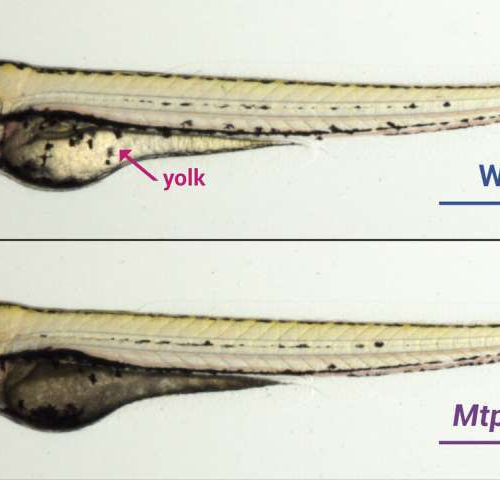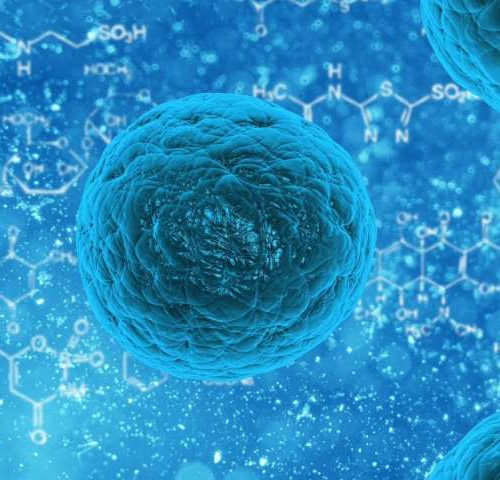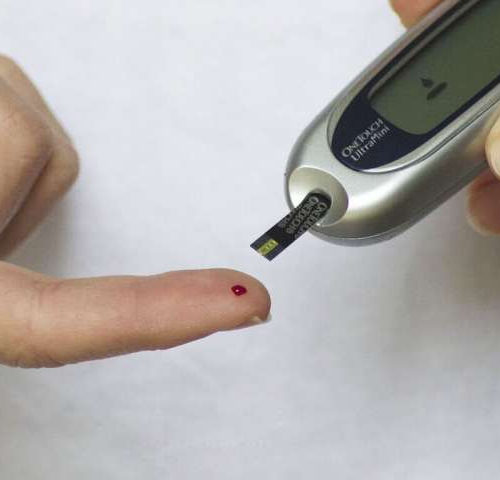by RIKEN Figure 1: Colored transmission electron micrograph of a single mitochondrion in a human pancreas cell. RIKEN researchers have developed a fluorescent probe that can detect the programmed death of defective mitochondria in the lysosomes. Credit: K.R. PORTER/ SCIENCE PHOTO LIBRARY A versatile probe that can detect with pinpoint accuracy the programmed destruction of...
Tag: <span>heart disease</span>
Lipoic acid supplements help some obese but otherwise healthy people lose weight
by Steve Lundeberg, Oregon State University A compound given as a dietary supplement to overweight but otherwise healthy people in a clinical trial caused many of the patients to slim down, research by Oregon State University and Oregon Health & Science University showed. The research, published in the Journal of Nutrition, analyzed the effects of...
Antibiotics linked to higher heart disease risk in individuals with type 1 diabetes
Results from a study published in the Journal of Internal Medicine suggest that bacterial infections may elevate the risk of coronary heart disease in individuals with type 1 diabetes. Among 3,781 individuals with type 1 diabetes, 370 developed coronary heart disease over an average follow-up of 13.7 years. Antibiotic purchases, reflecting bacterial infections in outpatient...
Newly discovered mutation could point to heart disease therapeutic target
by Carnegie Institution for Science lipid from the yolk of a zebrafish through the circulation to the growing tissues of the embryo. Later in development, they will also carry lipids from the intestine and liver. While normal, wild-type, zebrafish have clear yolks (top image), zebrafish with mutations in Mtp have abnormally opaque yolks because they...
A hidden epidemic of shrinking jaws is behind many orthodontic and health issues, Stanford researchers say
For many of us, orthodontic work – getting fitted with braces, wearing retainers – was just a late-childhood rite of passage. The same went for the pulling of wisdom teeth in early adulthood. Other common conditions, including jaw pain and obstructed sleep apnea – when slack throat muscles interrupt breathing during rest – also just...
Fat cell hormone boosts potential of stem cell therapy
by Osaka University Mesenchymal stem cells (MSCs) have the potential to differentiate into a range of different cell types, including bone, fat and muscle cells. But it’s their ability to stimulate the repair of damaged tissue that has captured the interest of researchers worldwide, with MSCs demonstrating therapeutic effects in the treatment of conditions such...
Common hypertension medications may reduce colorectal cancer risk
Hypertension Journal Report AMERICAN HEART ASSOCIATION DALLAS, July 6, 2020 — Medications commonly prescribed to treat high blood pressure may also reduce patients’ colorectal cancer risk, according to new research published today in Hypertension, an American Heart Association journal. Angiotensin converting enzyme inhibitor (ACE-i) or angiotensin II receptor blocker (ARB) medications are prescribed for conditions...
Women who experience high blood pressure during pregnancy more likely to develop heart disease
by University of Cambridge Women who experience high blood pressure during pregnancy are more likely to develop heart disease and heart failure in later life, according to an international team of researchers. Between 1-6% of all pregnancies in Western countries are affected by high blood pressure, which usually returns to normal after giving birth. This...
Signs of being prone to adult diabetes are already visible at age 8 years old
by University of Bristol Early signs of being more susceptible to type 2 diabetes as an adult can be seen in children as young as 8 years old, decades before it is likely to be diagnosed, according to a new study published in Diabetes Care today. The research looked at the effects of a genetic...
Direct reprogramming: Defying the contemporary limitations in cardiac regeneration
This article by Dr. Vivekanandan Palaninathan et al. is published in Current Pharmaceutical Design, 2020 BENTHAM SCIENCE PUBLISHERS Direct reprogramming or Transdifferentiation is a way of inducing changes in the cell type from one lineage into another lineage, bypassing pluripotency. This approach is an innovative choice to replace the lost cardiomyocytes after an end-stage myocardial...






